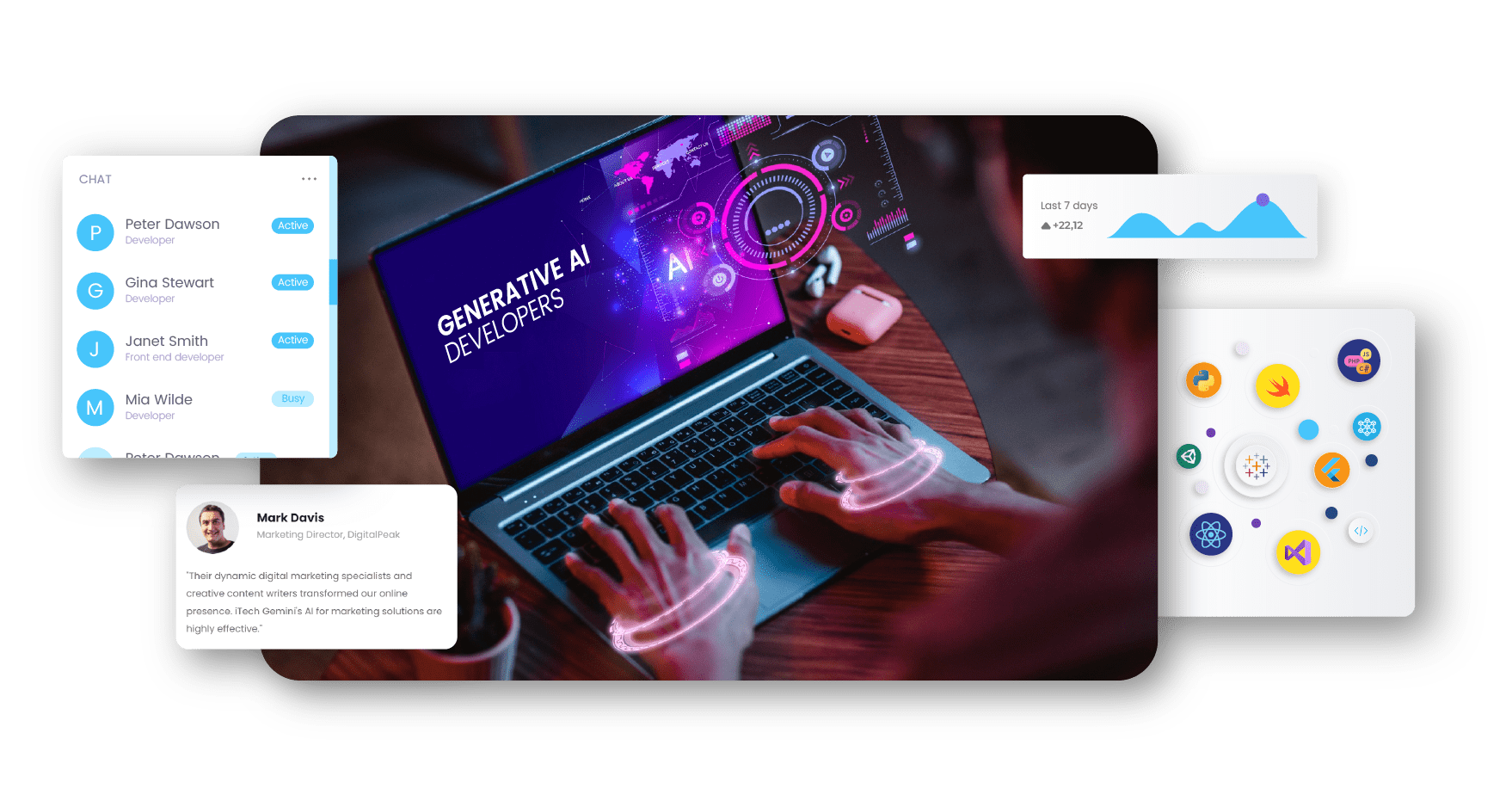Generative AI Developers: Crafting the Future
Generative AI, a subset of artificial intelligence, has revolutionized various industries with its ability to create content, art, and even entire virtual environments. In this article, we’ll delve into the world of generative AI developers, exploring their role, challenges, and the exciting future ahead.
Introduction to Generative AI
What is Generative AI?
Generative AI refers to algorithms and models designed to generate content autonomously. Unlike traditional AI systems that focus on prediction or classification tasks, generative AI creates new data based on patterns learned from existing datasets.
How does it work?
Generative AI utilizes techniques such as neural networks, reinforcement learning, and deep learning to generate content. These models learn from large datasets and can produce outputs ranging from images and text to music and videos.
Evolution of Generative AI
Generative AI has a rich history, dating back to early experiments in artificial creativity. Over the years, advancements in computing power and algorithms have propelled the field forward, enabling the creation of more sophisticated and realistic content.
Applications of Generative AI
Generative AI finds applications across various domains, including:
Art and Creativity
Generative AI has enabled artists and designers to explore new realms of creativity. From generating abstract paintings to designing unique digital sculptures, artists are leveraging generative AI to push the boundaries of traditional art forms.
Content Generation
In the era of digital content creation, generative AI plays a crucial role in generating text, images, and videos at scale. Content creators use generative models to automate repetitive tasks and produce personalized content for their audiences.
Gaming and Virtual Environments
In the gaming industry, generative AI is used to create realistic environments, characters, and interactive experiences. From procedurally generated landscapes to dynamic storytelling, generative AI enhances the immersion and replayability of games.
Challenges in Generative AI Development
Despite its potential, generative AI development faces several challenges:
Ethical Considerations
The use of generative AI raises ethical concerns regarding copyright, authenticity, and misinformation. Developers must ensure responsible use of generative models to mitigate these risks.
Bias and Fairness Issues
Generative AI models can perpetuate biases present in training data, leading to unfair or discriminatory outcomes. Addressing bias and ensuring fairness is essential for building trustworthy generative systems.
Technical Limitations
Generative AI still faces technical limitations, such as scalability, interpretability, and generalization. Overcoming these challenges requires continued research and innovation in the field.
Role of Generative AI Developers
Generative AI developers play a crucial role in advancing the field. They possess a unique set of skills and expertise, including:
- Proficiency in machine learning and deep learning algorithms
- Experience with programming languages such as Python and TensorFlow
- Creativity and problem-solving abilities
- Strong understanding of data structures and algorithms
Training and Education for Generative AI Development
Aspiring generative AI developers can pursue various paths for training and education:
Formal Education vs. Self-learning
Some developers opt for formal education, such as degrees in computer science or data science, to gain foundational knowledge in AI and machine learning. Others choose self-learning through online courses, tutorials, and open-source projects.
Online Resources and Courses
Numerous online platforms offer courses and resources for learning generative AI, including Coursera, Udacity, and TensorFlow’s official documentation. These resources cover topics ranging from basic concepts to advanced techniques in generative modeling.
Career Opportunities for Generative AI Developers
Generative AI developers are in high demand across industries, including:
- Entertainment and media
- Advertising and marketing
- Healthcare and biotechnology
- Automotive and manufacturing
Job roles for generative AI developers include:
- AI researcher
- Machine learning engineer
- Data scientist
- Creative technologist
Future Trends in Generative AI Development
The future of generative AI looks promising, with ongoing advancements in technology and applications. Key trends to watch out for include:
- Improved generative models with enhanced realism and creativity
- Integration of generative AI into everyday tools and applications
- Ethical guidelines and regulations for responsible AI development
Conclusion
Generative AI developers are at the forefront of innovation, shaping the future of artificial creativity. With their skills and expertise, they are unlocking new possibilities across industries and driving positive change in society.
Unique FAQ’s
- What programming languages are essential for generative AI development?
- Python is widely used for its extensive libraries and frameworks, particularly TensorFlow and PyTorch, which are popular for deep learning tasks in generative AI.
- How can generative AI models be used to combat misinformation?
- Generative AI models can be trained to detect and flag fake content by analyzing patterns and inconsistencies, thereby assisting in identifying and minimizing the spread of misinformation.
- Are there any ethical guidelines for using generative AI in art and design?
- While specific guidelines may vary, ethical considerations such as respecting intellectual property rights, transparency in AI-generated content, and avoiding reinforcement of harmful stereotypes are crucial in generative AI art and design.
- What are some real-world examples of generative AI applications?
- Examples include generating realistic images with StyleGAN for creative projects, generating natural language text with GPT models for content creation, and generating music with MuseNet for artistic endeavors.
- How can aspiring developers get started with generative AI?
- Beginners can start by learning Python programming, understanding basic machine learning concepts, and exploring introductory courses on generative models available on platforms like Coursera, Udacity, and YouTube.


